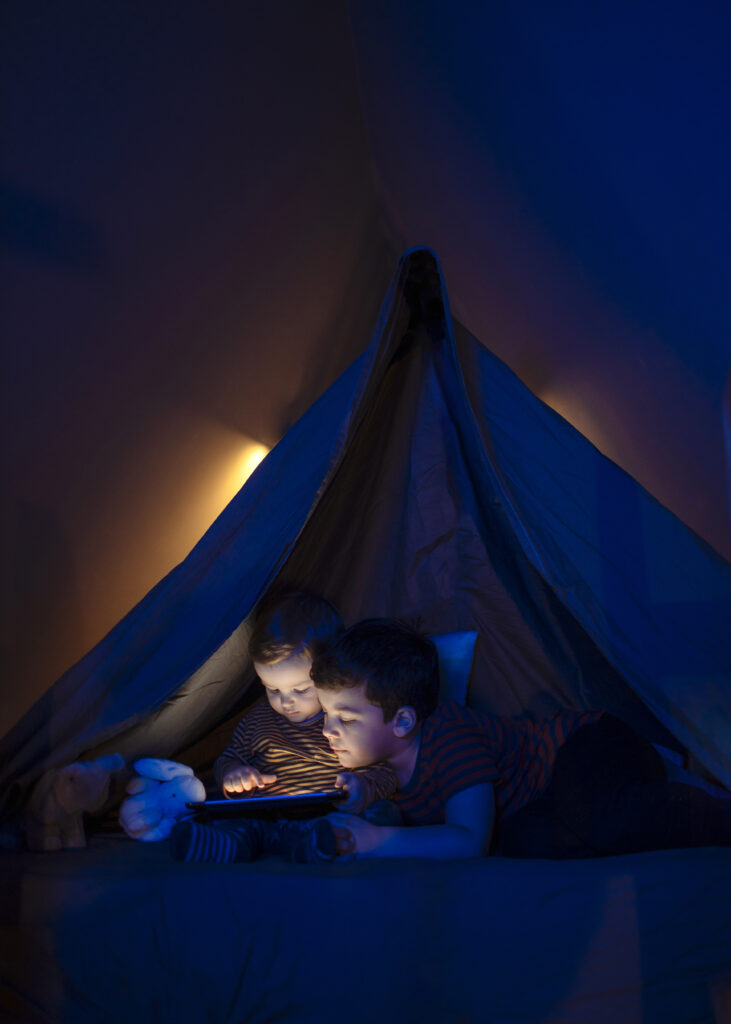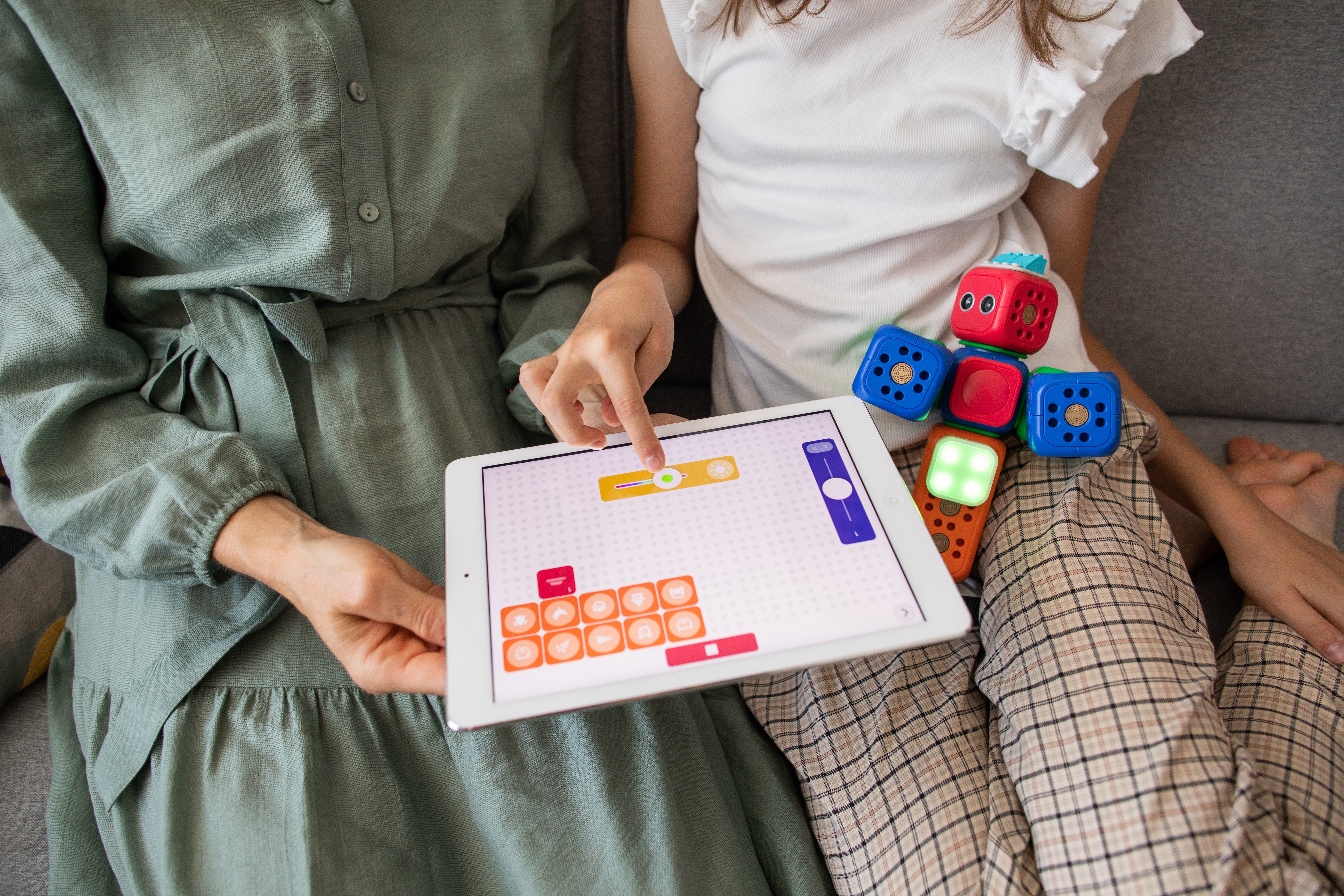We spoke to the CEO of Peppy Pals about technology as a tool for helping children to develop empathy and emotional intelligence, and why parents shouldn’t reject it.
Paulina Olsson is CEO of Swedish children’s brand Peppy Pals, a series of playful apps, books and movies teaching children social and emotional skills. Paulina was awarded by the Swedish King for her work to inspire kindness and empathy in every child.
Peppy Pals is designed with the goal of helping children develop social and emotional intelligence. Why do you think this is so important, and is it something we’re neglecting currently?
We’ve grown up into a system that is a one-size-fits-all, a world where academic skills are worshipped, and define if you are successful or not. But we are coming to realise that that’s not true. In fact, research shows only 15% of success is related to academic skills, and that 85% of our successes are linked to strong emotional intelligence.
"Technology can help teach children to share, collaborate with others, or even overcome fear."
Putting everything on academic skills and less on human skills doesn’t help us become well balanced individuals, nor successful leaders. The educational system is aware of this, however, to create real system change it requires policy making, lobbying as well as big companies to recognise this as a priority. All parties need to work together. Now why are academic skills more valued? Well, IQ is easily measurable. You are able to see its progress. Whereas empathy and emotional awareness are more difficult to quantify, one reason being it’s a dynamic skill that changes depending on your life situations. Not to say it shouldn’t be measured, but more to say it’s less tangible and more difficult to grasp.
What type of experience is Peppy Pals trying to create for kids and parents, and why?
We want to find a way to bridge parents and kids in talking about emotions and empathy. It’s important we do this through the lens of the child and not through something we, as parents, want to force on our child. Kids are on all digital devices, phones, tablets, etc. They download apps and unfortunately, many of these apps are about putting makeup on Barbie dolls; racing cars; or shooting guns. We wanted to participate in the digital world in a meaningful way, and help parents with the right tools.
We took on the challenge of gamifying social and emotional learning for kids and became a leading creator of digital experiences that teach kids how to deal with life. And we do that through different methods: books, TV series, apps. And today, also advise brands and companies on how to incorporate social and emotional learning into their products and experiences. It’s a competence that we have, and that a lot of parents need help with. Because it’s not easy for a parent to say to a four-year-old, Let’s sit down and talk about empathy.

Can technology really help children develop core life skills such as empathy and emotional intelligence?
Technology can help teach children to share, collaborate with others, or even overcome fear. The key is translating the message into something age appropriate and relatable for kids. We’ve worked with psychologists and kids in designing our stories. Through studies and observations we’ve noticed that when kids play through relatable scenarios and are able to interact with what’s going on, it leads to a more meaningful and helpful learning experience.
It creates visual memories in their mind that they can relate real-life situations to later in life, helping them navigate tricky moments and emotions in life. Technology is a powerful tool, it’s a tool 21st century kids have grown up with, and thus a part of their everyday life. And even though it hasn’t been that way for us growing up, it’s important we participate, support and show interest in digital instead of moving away from it.
How important do you think it is for parents to embrace technology as a parenting tool?
Actively rejecting technology or dismissing it all as ‘screen time’ means missing out on all the amazing things kids are up to when they’re online. It creates a gap between you and your child. Children need to have us adults participating in the digital playground, rather than have us not willing to put ourselves in their shoes of what it means to be a child today. It’s just as important to raise kind, caring individuals online as it is offline.
"Children need to have us adults participating in the digital playground, rather than have us not willing to put ourselves in their shoes of what it means to be a child today."
Needless to say, children like having present parents who are curious and ask questions about what happens in their world, whether that is asking about what has happened in Fortnite today or what’s so fun about TikTok? When you do so, it’s important to listen to your child and not make your own assumptions or judgements. Help them navigate feelings and friendships online instead, just as you would in school or at home.
Technology is not just a place of addiction to screen time, even though it’s important to be aware of it too. We can benefit so much if we saw it as a beautiful way to participate in your child’s life, because let’s face it, it’s a place where your child hangs out with his/her friends quite a lot. It’s beautiful to participate in your child’s digital life.
Many parents feel a general nervousness towards all new forms of technology; what would your advice be to them?
Many parents feel insecure, overwhelmed or even uninformed about the many different inputs technology can have in their child’s life. It’s natural. We as humans fear the “unknown”, making it easier to reject something rather than trying to understand it. Oftentimes when we are introduced to new things, it’s in our nature to be sceptical, to react in a way that assumes it’s there to pose danger. That’s how we’ve been taught to look at things.
I get it. It’s difficult for parents to navigate and understand what is good and bad. In trying to figure this out, it helps if we compare it to something more concrete, like food for example. If we fill our body every day with unhealthy food, our body will eventually react and say it’s not good for you. We know a healthy diet is about having a varied diet. Same goes with technology, there are inputs that are not good for our kids, games that are addictive and triggers nerves within our brain that give us an instant kick. If we feed our brain with only this everyday it can lead to a short attention span and have negative consequences.
"We as humans fear the 'unknown', making it easier to reject something rather than trying to understand it."
Actively rejecting technology or dismissing it all as ‘screen time’ means missing out on all the amazing things kids are up to when they’re online. It creates a gap between you and your child. On the other hand, it’s soothing for parents to know there are tools, games and shows that have been curated or even developed for kids and won’t harm them. Parents often know what is good for their child. They need to trust themselves more when it comes to tech and simply remember moderation and a balanced diet is always good.
Download the full report, The Parenting Upgrade, here.


No Comments.